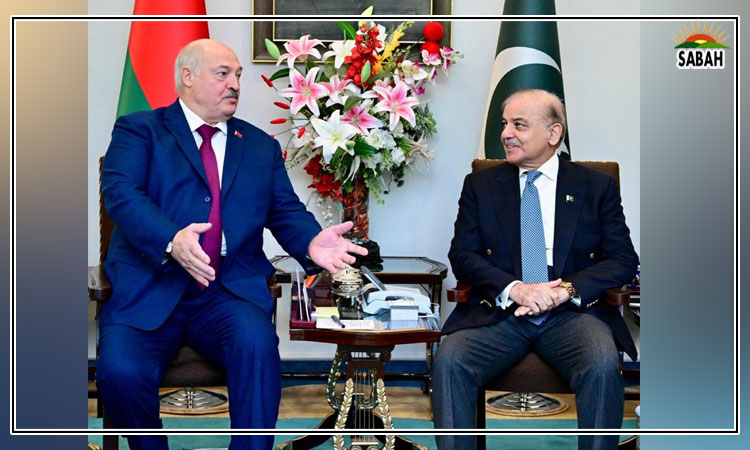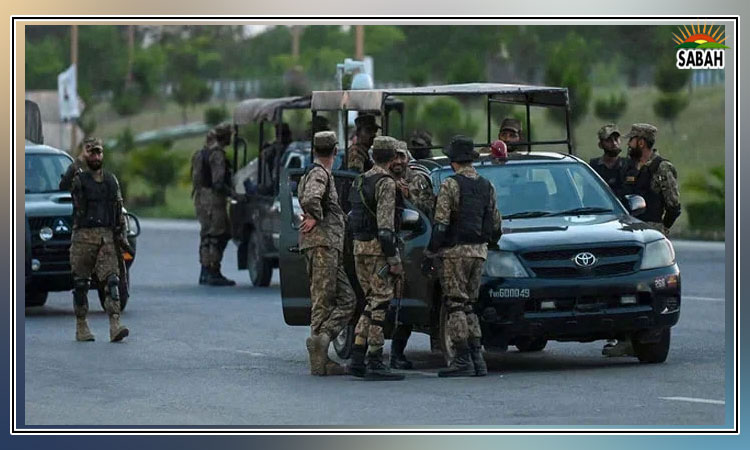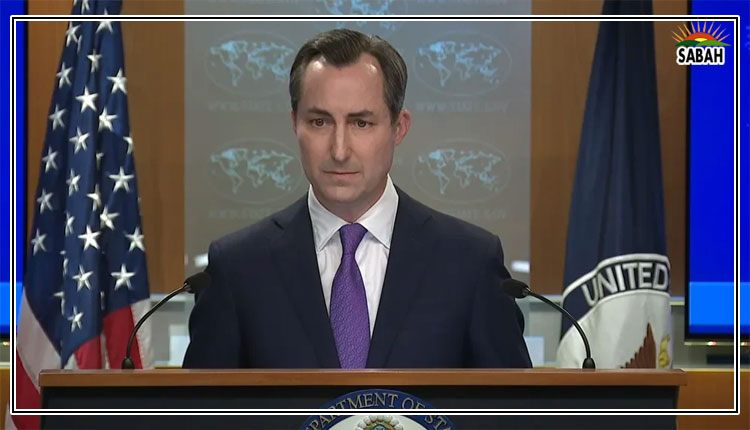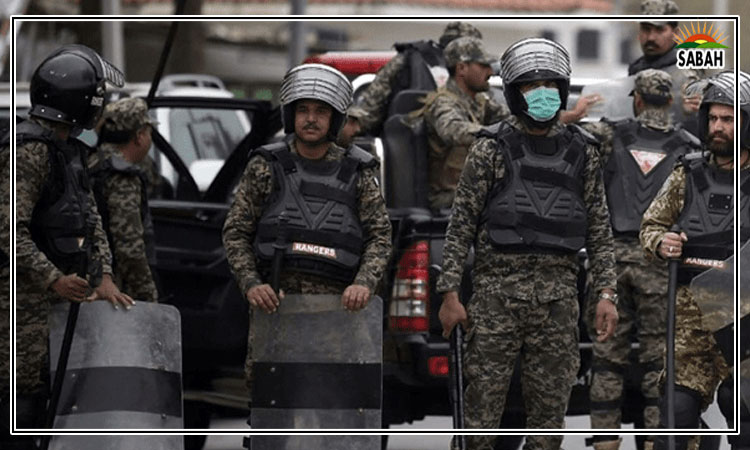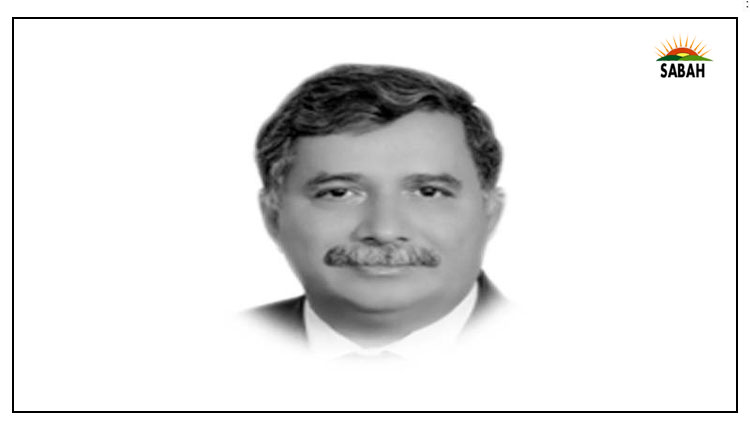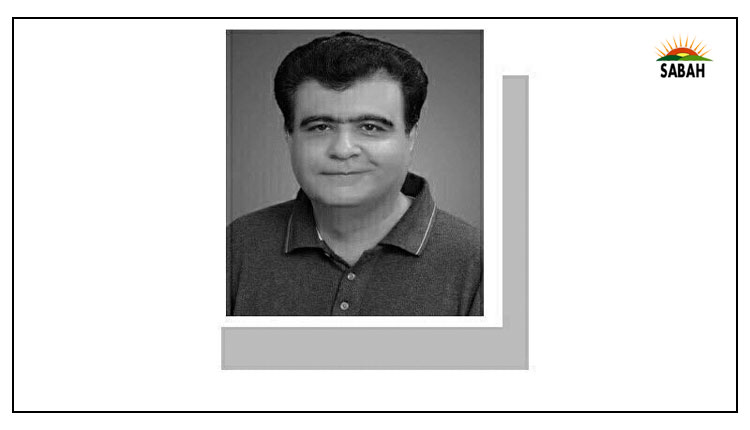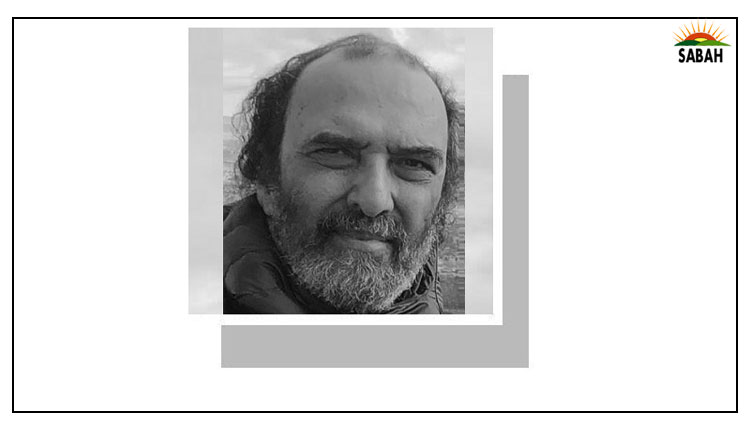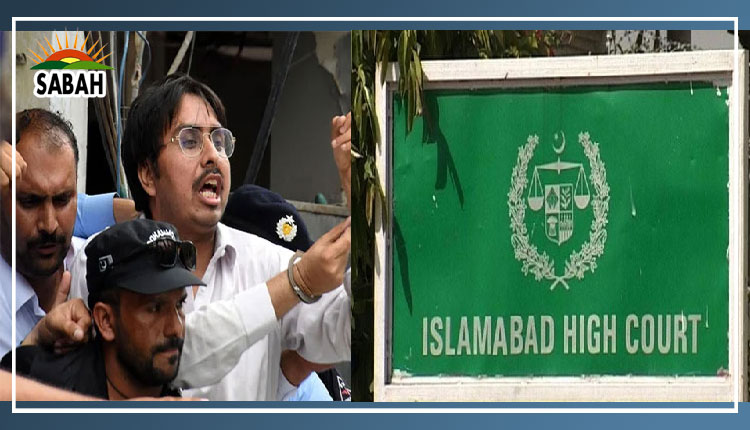CJ IHC Athar Minallah grants post arrest bail to Dr. Shahbaz Shabbir Gill in sedition case
ISLAMABAD, Sep 15 (SABAH): Chief Justice Islamabad High Court (IHC) Justice Athar Minallah while granting post-arrest bail to Pakistan Tehreek-e-Insaf (PTI) leader Dr. Shahbaz Shabbir Gill, in a sedition case for allegedly inciting people against state institutions, has ordered to release him.
The court while granting Shahbaz Gill’s request for bail and directed the payment of Rs5,000 bond. The court declared that keeping someone in jail without proofs is not appropriate as if the accused proves him innocent in the days to come then who will compensate him.
IHC Chief Justice (CJ) Athar Minallah took up the plea on Thursday and approved Gill’s bail after hearing arguments from both sides. Presenting his arguments, Gill’s lawyer, Barrister Salman Safdar Advocate, recalled that an additional sessions judge had already rejected a plea for the PTI leader’s bail.
The lawyer said the case against Gill was registered under 14 sections of the Pakistan Penal Code on the basis of a “speech”, and a plea for the disposal of the case was pending in the court. “The entire case revolves around a speech,” he said.
Safdar contended that the case was based on “mala fide” and politically motivated, adding that the investigation had already been completed and no more articles needed to be confiscated from Gill.
He reminded the court that Gill had served as a special assistant to the prime minister during the PTI’s tenure and was later appointed as party chairperson Imran Khan’s chief of staff.
“He has been very critical of the [incumbent] government,” the lawyer said, at which Justice Minallah told him not to discuss political matters. “Present your arguments only on legal points,” the IHC CJ directed him.
Following that, Safdar read out the contents of the first information report (FIR) registered against Gill and said police proceedings were very important in the matter.
Justice Minallah then asked him whether Gill had actually made the statements quoted in the FIR.
“How will you justify such comments coming from a party representative? Why do political parties drag the [armed] forces into politics?” the IHC CJ questioned.
Gill’s lawyer responded by saying that statements from the complainant of the case had been a bigger cause of anarchy. “[Gill’s] speech did not cause as much anarchy as the complainant made it out to be.” He alleged that some parts from Gill’s remarks had been removed and only some parts were put together to make a case.
Reading out Gill’s remarks, he pointed out that the PTI leader had named the senior leaders of the PML-N. But “on the basis of mala fide and as part of a plan, these parts were removed”, the lawyer alleged. The lawyer contended that Gill’s remarks had only pertained to the “strategic media cell”.
At that, the IHC CJ commented: “This conversation shows to what extent political parties have fuelled hatred.”
Continuing his arguments, Gill’s lawyer contended that no one had the authority to register a case on behalf of the armed forces.
“This case has been registered at the PML-N’s behest. If the armed forces had any reservations, they would have got a case registered themselves.”
Here, Justice Minallah asked the lawyer not to make such statements. “Shahbaz Gill’s remarks were appropriate. It is a separate matter that the armed forces aren’t so weak that such statements would bring their morale down.”
He asked whether the government’s permission had been sought before the registration of the FIR, to which Gill’s lawyer replied in the negative.
Safdar said the matter of Gill’s remand was made controversial and the inclusion of sedition charges also made the case controversial. “A mockery has been made out of sedition cases,” he said, adding that sedition charges were included in cases pertaining to “very serious accusations”.
“It is easy to file a sedition case but very difficult to prove it,” he said, adding that Gill had been in detention for 36 days. “He has already spent enough time in jail for his deeds.”
Moreover, the trial court had concluded that “12 out of 13 sections included in the FIR did not apply to Shahbaz Gill”, the lawyer contended.
Returning to the contents of Gill’s remarks, he said the Supreme Court had issued verdicts on refusing to obey “illegal instructions” and even “Quaid-i-Azam Mohammad Ali Jinnah said in one of his speeches that illegal instructions shouldn’t be obeyed”.
Justice Minallah, however, said: “Shahbaz Gill’s statements were inappropriate and no justification could be given for them. “Shahbaz Gill’s statements were also defamatory. People’s reputations should not be maligned.” He asked the lawyer to explain how the charges in the FIR against Gill were incorrect.
“Wasn’t the representative of a political party aware that the armed forces have taken an oath of not meddling in politics? Shahbaz Gill’s statements were irresponsible, inappropriate and defamatory,” the IHC CJ said.
While presenting his arguments, Special Prosecutor Raja Rizwan Abbasi said, “It is not written anywhere that armed forces will get the case registered themselves.”
He added that according to the law, inciting mutiny was abetting the crime. And Gill made the remarks on television, which had a large audience, the prosecutor said. “He deliberately made such remarks on television. He deliberately tried to provoke [them].” At that, Justice Minallah asked him not to give arguments on mutiny. He added that Gill could only be charged with inciting mutiny if the involvement of another officer or personnel was proved.
“Has any revelation about Shahbaz Gill contacting a soldier been made during the probe? Was any contact made after which Shahbaz Gill tried to incite mutiny? Do you believe that such an irresponsible statement can affect the armed forces?” he asked. The prosecutor told the court that no proof of Gill contacting a soldier had been found. “People label others traitor on a whim,” Justice Minallah remarked.
He further noted that the trial court had removed all of the prosecution’s charges from the FIR, barring one. The judge added that the trial court was not satisfied and that was why the sections were removed.
“Did you ever challenge that order of the trial court?” he asked, to which the prosecutor replied there was no need to challenge the order. However, Justice Minallah said if an “order goes against you, there is a need to challenge it”.
Continuing his arguments, the prosecutor told the court that a forensic report of Gill’s satellite phone was awaited and his mobile phone was in his driver’s custody, which was yet to be recovered. The prosecutor claimed that the satellite phone had “dangerous content”. He also complained that Gill was not cooperating in the investigation.
The prosecutor also cited Section 131 of the Pakistan Penal Code, which he said mentioned the punishment for giving statements against the armed forces.
“The section that you are citing says that punishment should be given for statements against an officer,” the IHC CJ corrected him. At that, the prosecutor argued that Gill’s remarks were about “all of the officers of the armed forces”.
He further contended that Gill had not denied making the statements mentioned in the FIR and accused the PTI leader of trying to “divide the Pakistan Army”.
At one point, Justice Minallah also observed that if social media content was taken under consideration, “half of Pakistan’s population would end up in jail”. The prosecutor, however, argued that unless people were sent to jail, such acts would not end.
But Justice Minallah said: “Putting people in jail will not be of any use unless efforts are made for betterment.” He asked the prosecutor why Gill’s bail plea should be dismissed.
“This court has had a consistent stance on bail. After final acquittal, the time spent under arrest cannot be compensated for,” the IHC CJ observed.
The prosecutor then contended that based on his track record, Gill could make remarks similar to those on this case in the future as well.
“If he does this again, a plea can be filed in the trial court,” Justice Minallah said and granted the PTI leader bail against Rs500,000 surety bonds.
It is worth mentioning here that on August 9, the same day when Gill was arrested, the Pakistan Electronic Media Regulatory Authority (PEMRA) had issued a show-cause notice to “ARY News” for airing comments from Gill, that it said were “highly hateful and seditious” remarks tantamount to “incite armed forces towards revolt”.
The notice stated that Gill was invited via a telephonic call for his comments and during his talk with the channel, Gill had alleged that the government was trying to provoke the lower and middle tier of the army against the PTI, saying the families of such “rank and file” support Imran Khan and his party “which is fuelling rage within the government”.
Meanwhile, a case was registered against Gill on charges of sedition and inciting mutiny in the army. The first information report was registered under Sections 34 (common intention), 109 (abetment), 120 (concealing design to commit offence punishable with imprisonment), 121 (waging war against state), 124-A (sedition), 131 (abetting mutiny, or attempt to seduce a soldier, sailor or airman from his duty), 153 (provoking to cause riot), 505 (statement conducing to public mischief) and 506 (punishment for criminal intimidation) of the Pakistan Penal Code.



